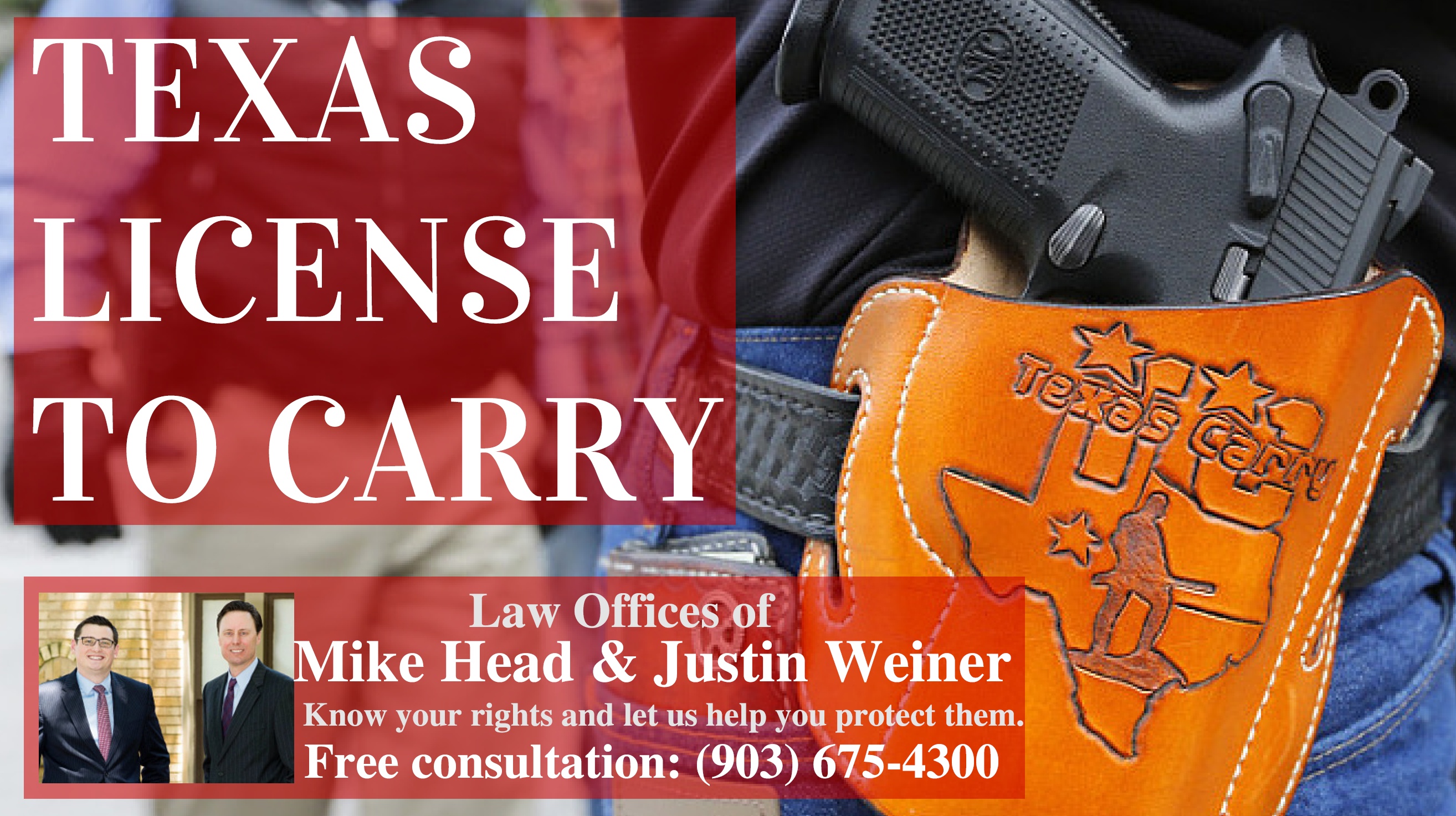Texas License to Carry

There have been many significant changes to laws involving firearms in the last year. No matter how hard you try to keep up, the changes can be daunting. Though many people often rush to judgement regarding changes in the law, sometimes the laws are easier to understand and flesh out once the dust has settled. Our Second Amendment right to “Keep and Bear Arms” almost always brings out polarizing opinions however it is discussed. This is even more of a reason to fully know and understand your rights.
Contrary to public perception, Texas was VERY slow to act and allow citizens to open carry. Believe it or not, Texas was the 45th state to allow a form of open carry. Texas, along with California, Florida, South Carolina, Illinois, and New York was one of the only states that did not allow you to openly carry a handgun. So now that the law has been passed and is active, what does it mean for the citizens of Texas?

As of January 1, 2016, you can no longer apply for a Concealed Handgun License (CHL) in the State of Texas. The license has been permanently replaced by a License to Carry (LTC). Subject to restrictions, a LTC allows you openly carry a firearm throughout Texas.

If you already have a valid CHL then you are grandfathered in until you are required to renew your license. This means that you can open carry with a valid CHL license until you have to renew. Keep in mind that Texas did not pass a “Constitutional Carry” law which means that you must go through the licensing process to exercise your right. You must have a license by the State of Texas or any other state with reciprocity to legally carry a firearm other than a long rifle or shotgun.

-
If you are going to open carry, the firearm must be in a visible belt or shoulder holster. The law is silent and does not give any specific type of holster that you should use to carry your firearm. This means that there is no requirement for the holster to be a retention holster.
-
You can open carry your handgun in any place that you could have conceal carried under the old law. The inverse is also true, regarding prohibited areas to carry your handgun.
-
Restricted places include but are not limited to: Federal buildings, schools, public sporting events, courts, polling places, or any commercial or residential place/business with a sign under 30.07.
-
If you carry into a residential or business area with a validly placed 30.07 sign, then you can be written a Class C citation and fined up to $200.
-
If you are asked to leave and do not, then you may be arrested and charged with a Class A Misdemeanor.
-
You are also restricted from carrying if you are intoxicated.
-
A valid LTC still allows you to carry and conceal your handgun. The new law merely gives you an option to openly carry your handgun.
-
Any peace officer or magistrate can demand to see your LTC if you are open carrying your handgun. In the Texas Government Code § 411.205, the law states that: “the license holder shall display both the license holder’s driver’s license or identification certificate issued by the department and the license holder’s handgun license.” If you do not have your license with you when you are open carrying your handgun, you are in violation of the law.
-
Your LTC is a valid form of personal identification that can be used for goods, services, or facilities.
-
You still must have your valid driver’s license to operate a motor vehicle legally.
-
Your firearm may be loaded. Unlike several states, in Texas there is no distinction between a loaded and an unloaded handgun regarding a LTC.
-
Remember to always treat every firearm as if it were loaded. If you are going to carry a loaded handgun, be sure that you exercise caution for the safety of yourself and others.

Texas Government Code Chapter 411, Subchapter H sets out the eligibility criteria that must be met if you want to obtain a LTC. These criteria include but are not limited to:
-
You must be 21 years of age or older (unless active military duty).
-
You must meet Federal qualifications to purchase a handgun.
-
Potential Disqualifiers:
-
Felony Convictions and some misdemeanor convictions. This can include charges that resulted in probation or deferred adjudication.
-
If you have been convicted of a Class A or Class B misdemeanor, then you are ineligible to obtain a LTC for 5 years.
-
Certain pending criminal charges.
-
Chemical or alcohol dependency.
-
Certain psychological diagnoses.
-
Protective or restraining orders.
You will be required to fill out the application which includes a $140 licensing fee for a 5-year license. If you are 60 years old or older, the license fee is only $70 and there is no fee if you are active military personnel.
-
Renewal fees are discounted.
Finally, you will also be required to attend a 4-hour mandatory training course. The course was 10 hours until the law changed in 2013. Note that this course will cost money in addition to the licensing fee previously listed.
-
The course is mandated by law to include: a written exam, a proficiency shooting demonstration, and 4-6 hours of class time.

The information presented is not legal advice and is not to be acted on as such. The information may not be current and is subject to change without notice. Interacting, commenting, or sending a message on this website does not create an attorney-client relationship. For more complete information from DPS visit: http://dps.texas.gov/rsd/chl/faqs/ and for the entire statute please visit: http://www.statutes.legis.state.tx.us/Docs/GV/htm/GV.411.htm






